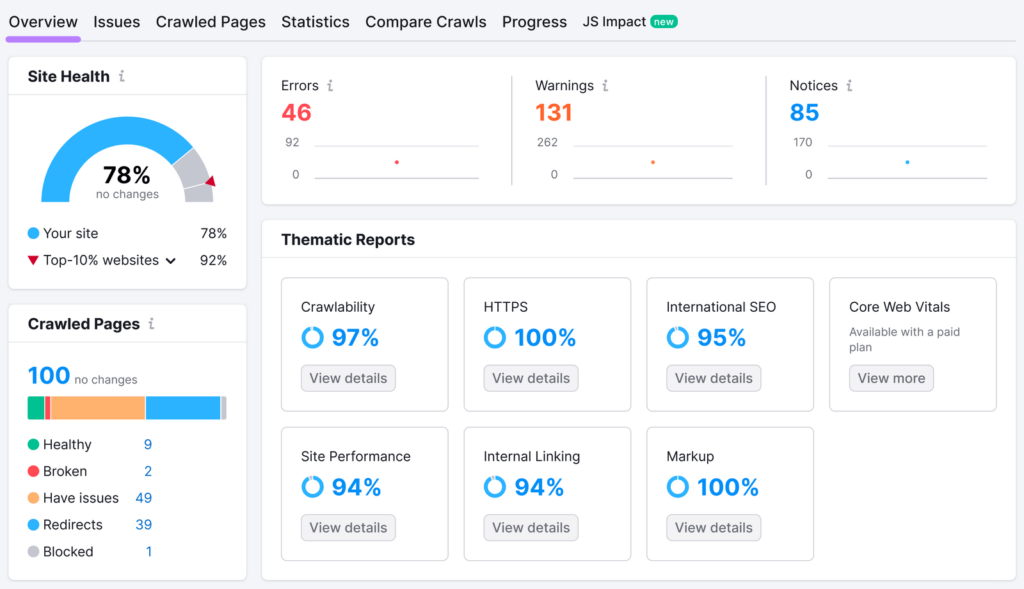One important component of search engine optimization (SEO) is off page seo factors, which concentrates on actions taken outside of your own website to raise its exposure and search engine ranks. Off-page SEO focuses on establishing credibility and authority outside of your website, as opposed to on-page SEO, which focuses on optimizing features within your website. The following are some essential off page seo points.

Link Building: Acquire backlinks from other websites to improve your site’s authority and relevance. Focus on obtaining links from reputable and relevant websites in your industry. Some effective link building strategies include off page seo
- Guest Blogging: Write guest posts for other blogs in your niche and include a link back to your website.
- Outreach: Reach out to influencers, bloggers, and website owners to request backlinks or collaborations.
- Content Promotion: Share your content on social media, forums, and online communities to attract natural backlinks.

- Social Media Engagement: Build a strong presence on social media platforms to increase brand visibility and attract traffic to your website. Engage with your audience, share valuable content, and participate in relevant conversations. Social signals, such as likes, shares, and comments, can indirectly impact your off page seo
- Online Reputation Management: Monitor and manage your online reputation to ensure positive reviews and mentions of your brand. Respond promptly to customer feedback and address any negative comments or reviews professionally. A positive online reputation can indirectly influence search engine rankings.

Local SEO: If you have a local business, optimize your online presence for local search. Claim and optimize your Google My Business listing, ensure consistency in your NAP (Name, Address, Phone Number) information across online directories, and encourage customer reviews and ratings.

Social bookmarking is a technique used in SEO off page seo to promote and share website content across various social bookmarking platforms. Here’s a detailed overview of social bookmarking in SEO:
- Definition: Social bookmarking involves submitting links to web pages, articles, blog posts, images, and videos to social bookmarking websites. These platforms allow users to save, organize, and share bookmarks of web pages, which can then be accessed by other users.
- Purpose in SEO:
- Backlinks: One of the primary reasons for using social bookmarking in SEO is to generate backlinks to your website. When you submit a link to a social bookmarking site, it creates a backlink to your webpage, which can improve your site’s visibility and search engine rankings.
- Traffic Generation: Social bookmarking sites often have large user bases, and sharing your content on these platforms can drive traffic to your website. If your content gets featured or goes viral on a social bookmarking site, it can result in a significant influx of visitors.
- Indexing and Crawling: Search engines frequently crawl social bookmarking sites, so when your content is bookmarked and shared, it increases the chances of search engines discovering and indexing your web pages faster.
- Brand Exposure: Social bookmarking can also help increase brand exposure and awareness by getting your content in front of a broader audience. When users come across your bookmarks, they may click through to your website and become familiar with your brand.
- How It Works:
- Register: Sign up for accounts on popular social bookmarking platforms such as Reddit, Digg, StumbleUpon (now Mix), Delicious, Pinterest, and others.
- Submit Links: Share links to your website content by submitting them to these platforms. Make sure to follow the guidelines and rules of each site to avoid being flagged as spam.
- Describe and Tag: Provide a descriptive title, description, and relevant tags when submitting your links. This helps users understand what your content is about and makes it more discoverable. off page seo
- Engage: Actively participate in the social bookmarking community by commenting on other users’ bookmarks, upvoting or liking content, and engaging with relevant discussions. Building a presence and reputation within these communities can enhance the visibility of your own bookmarks.
- Best Practices:
- Quality Content: Share high-quality, valuable content that is relevant to your target audience. Content that provides solutions to problems, entertains, or educates is more likely to be bookmarked and shared.
- Diversity: Don’t focus solely on promoting your own content. Share a mix of your own content and relevant content from other sources to avoid appearing overly promotional.
- Consistency: Regularly update your social bookmarking profiles with new content to keep your audience engaged and maintain visibility.
- Avoid Spam: Don’t engage in spammy or manipulative tactics, such as submitting irrelevant links, overposting, or excessively promoting your own content. This can harm your reputation and lead to penalties from social bookmarking sites.
In summary, social bookmarking can be a valuable tool in an off page seo strategy, helping to generate backlinks, drive traffic, improve indexing, and increase brand exposure. However, it’s essential to approach social bookmarking with a focus on providing value to users and engaging authentically with the community.

Monitoring and analyzing off-page SEO efforts are crucial for assessing the effectiveness of your strategies and making informed decisions to improve your website’s performance. Here’s how you can monitor and analyze off page seo
- Backlink Analysis:
- Backlink Quantity and Quality: Use tools like Ahrefs, Moz, or SEMrush to monitor the number of backlinks pointing to your website and their quality metrics, such as Domain Authority (DA) and Page Authority (PA). off page seo
- Anchor Text Distribution: Analyze the anchor text distribution of backlinks to ensure a natural and diverse link profile. Avoid over-optimization of anchor text, which could trigger search engine penalties.
- Competitor Analysis: Compare your backlink profile with competitors to identify opportunities for acquiring new backlinks and improving your link-building strategy.
- Social Signals:
- Social Shares: Monitor the number of social shares your content receives across various social media platforms. Tools like BuzzSumo or Social Mention can help track social engagement metrics.
- Engagement Metrics: Analyze likes, comments, shares, and other engagement metrics to gauge the popularity and relevance of your content on social media in off page seo.
- Online Reputation Management:
- Brand Mentions: Use tools like Google Alerts, Mention, or Brand24 to monitor mentions of your brand or products across the web. Respond promptly to both positive and negative mentions to manage your online reputation effectively.
- Review Monitoring: Monitor online reviews and ratings on platforms like Google My Business, Yelp, or industry-specific review sites. Address any negative reviews professionally and leverage positive reviews to enhance your brand reputation.
- Local SEO Metrics (if applicable):
- Google My Business Insights: Monitor metrics such as impressions, clicks, and actions taken on your Google My Business listing. Analyze local search performance to identify areas for improvement off page seo
- Local Citations: Track the accuracy and consistency of your NAP (Name, Address, Phone Number) information across online directories and citation sources. Tools like Moz Local or BrightLocal can help manage local citations.
- Referral Traffic Analysis:
- Google Analytics: Analyze referral traffic sources to identify websites sending traffic to your site. Evaluate the quality and relevance of referral traffic to assess the impact of your off-page SEO efforts.
- Conversion Tracking: Track conversions and goal completions attributed to referral traffic to measure the effectiveness of different referral sources in driving valuable actions on your website.
- Content Performance: Monitor the performance of syndicated content on third-party platforms or publications. Track metrics such as views, clicks, and engagement to assess the effectiveness of content distribution efforts.
- Attribution and Traffic Sources: Analyze referral traffic sources to identify which platforms or publications are driving traffic to your syndicated content.
- Regular Reporting and Optimization:
- Regular Reporting: Generate regular reports to track key off-page SEO metrics and trends over time. Identify patterns, successes, and areas for improvement to inform future strategies.
- Optimization Strategies: Based on your analysis, adjust and optimize your off-page SEO strategies to maximize results and achieve your goals. Experiment with new tactics, refine existing approaches, and stay updated on industry trends and best practices.
By monitoring and analyzing off-page SEO metrics regularly, you can gain valuable insights into the effectiveness of your efforts and make data-driven decisions to enhance your website’s visibility, authority, and performance in search engine rankings.

Table of Contents
Overall, off page seo plays a vital role in establishing your website’s authority, increasing its visibility, driving traffic, and ultimately improving its performance in search engine rankings. By investing time and resources into off page seo strategies, you can position your website for long-term success in the competitive online landscape.
- Long-Term Growth: Off-page SEO efforts, such as building a diverse backlink profile and cultivating a positive online reputation, contribute to sustainable long-term growth for your website. Unlike some on page seo tactics that may yield quick results but lack longevity, off-page SEO helps establish a strong foundation for enduring success.
- Competitive Advantage: Effective off-page SEO strategies can give you a competitive edge in your industry. By outperforming competitors in acquiring quality backlinks, managing brand mentions, and engaging on social media, you can improve your website’s visibility and attract more organic traffic.
[rank_math_html_sitemap]